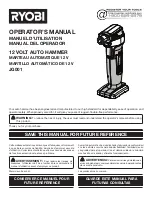
178
IBM Power 720 and 740 Technical Overview and Introduction
Display/Alter/Dump
Licensed Internal Code log
Main storage dump manager
Hardware service manager
Call Home/Customer Notification
Error information menu
LED management menu
Concurrent/Non-concurrent maintenance (within scope of the OS)
Managing firmware levels
– Server
– Adapter
Remote support (access varies by OS)
Service Focal Point on the Hardware Management Console
Service strategies become more complicated in a partitioned environment. The Manage
Serviceable Events task in the management console can help to streamline this process.
Each logical partition reports errors that it detects and forwards the event to the Service Focal
Point (SFP) application that is running on the management console, without determining
whether other logical partitions also detect and report the errors. For example, if one logical
partition reports an error for a shared resource, such as a managed system power supply,
other active logical partitions might report the same error.
By using the
Manage Serviceable Events
task in the management console, you can avoid
long lists of repetitive call-home information by recognizing that these are repeated errors and
consolidating them into one error.
In addition, you can use the
Manage Serviceable Events
task to initiate service functions on
systems and logical partitions, including the exchanging of parts, configuring connectivity, and
managing dumps.
4.4.2 IBM Power Systems firmware maintenance
The IBM Power Systems Client-Managed Microcode is a methodology that enables you to
manage and install microcode updates on Power Systems and associated I/O adapters.
The system firmware consists of service processor microcode, Open Firmware microcode,
SPCN microcode, and the POWER Hypervisor.
The firmware and microcode can be downloaded and installed either from an HMC, from a
running partition, or from USB port number 1 on the rear of a Power 720 and Power 740, if
that system is not managed by an HMC.
Power Systems has a permanent firmware boot side (A side) and a temporary firmware boot
side (B side). New levels of firmware must be installed first on the temporary side to test the
update’s compatibility with existing applications. When the new level of firmware has been
approved, it can be copied to the permanent side.
For access to the initial web pages that address this capability, see the Support for IBM
Systems web page:
http://www.ibm.com/systems/support















































